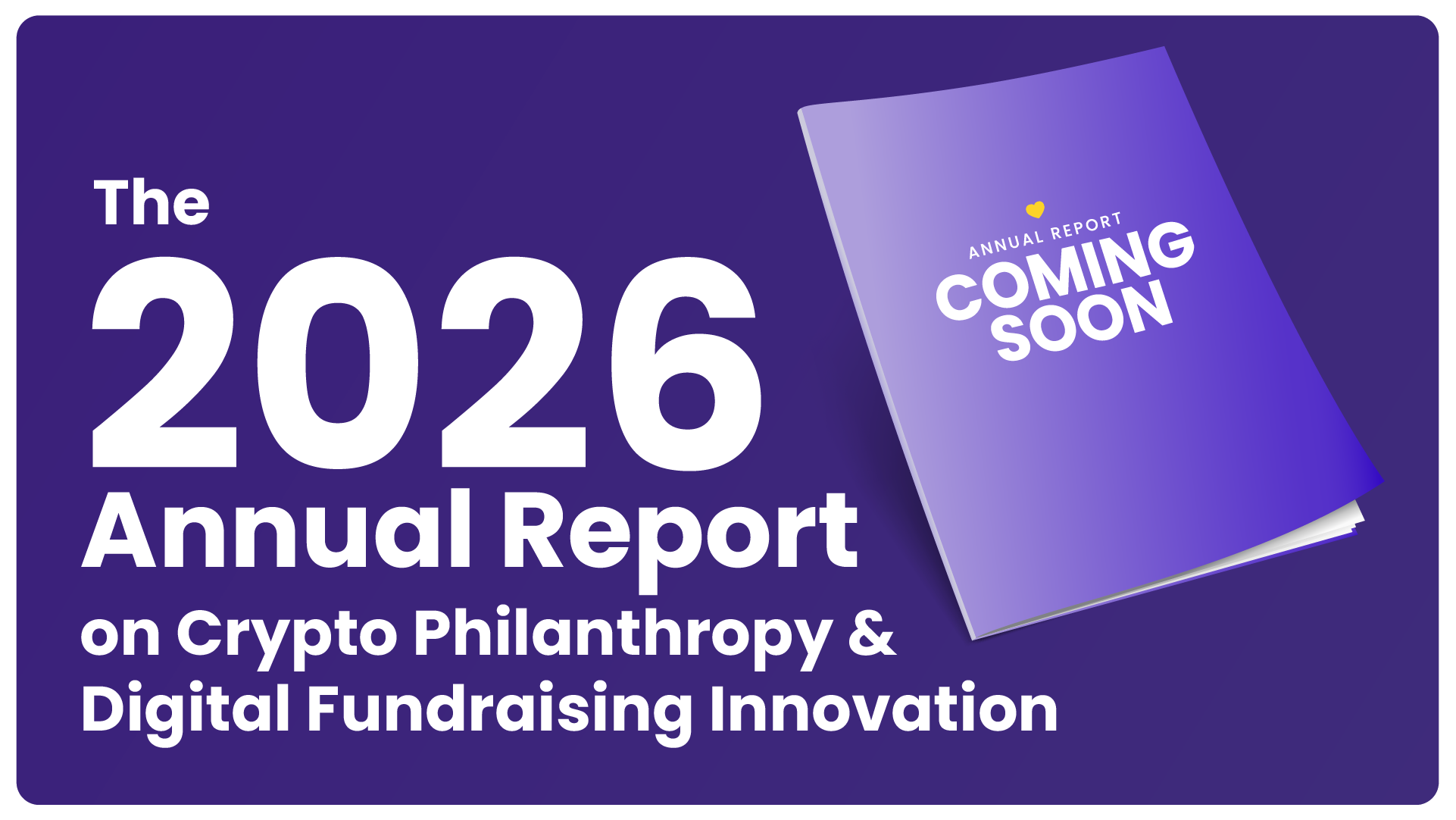Many nonprofits exploring new fundraising methods have considered accepting crypto donations. Despite crypto philanthropy becoming mainstream—over $1 billion in cryptocurrency was donated to charities in 2024 alone—some decision-makers still raise concerns about the environmental impact of the crypto sector. Using recent insights, we address key claims at the intersection of crypto, the environment, and social impact.
> This article is a part of our “Myths vs. Facts” series on crypto philanthropy.
1. Crypto’s Energy Usage
Myth #1: Crypto uses more energy than most industries.
Fact: Like all technologies, crypto requires energy, but it’s crucial to maintain perspective. According to the Cambridge Digital Mining Industry Report, Bitcoin mining accounts for approximately 138 TWh annually, representing about 0.54% of global electricity consumption. This figure indicates that Bitcoin mining energy consumption is relatively modest compared to larger industries such as transportation or traditional financial systems.
Since Bitcoin proposes an entire self-contained monetary and payment system, you should probably be comparing that to the whole dollar system.
2. Bitcoin Mining
Myth #2: Bitcoin mining is particularly wasteful.
Fact: According to the Cambridge Digital Mining Industry Report, miners predominantly use sustainable energy sources (52.4%), including renewables like hydro (23.4%) and wind (15.4%). Fossil fuels constitute 47.6%, with natural gas as the single largest energy source at 38.2%.

If people were 10% more efficient at shutting off their electronic devices when not using them, then that alone would save more energy than the global Bitcoin network uses.
These recent advancements in making mining practices more sustainable signifies a positive shift towards minimizing the environmental impact of Bitcoin mining practices.
3. Blockchain and Renewable Energy Innovation
Myth #3: Blockchain can’t help solve society’s sustainability challenges.
Fact: Blockchain technology is rapidly becoming a key driver of innovation in the renewable energy sector, offering solutions to enhance grid stability and accelerate the adoption of clean energy sources. By enabling decentralized peer-to-peer energy trading, blockchain allows individuals and businesses with renewable energy generation, like solar panels, to sell excess power directly to consumers, fostering local energy markets and reducing reliance on traditional utilities. This technology also improves grid management by facilitating real-time data exchange and automated responses to energy demand, contributing to a more stable and efficient energy distribution system.
Blockchain is fostering innovation through the tokenization of renewable energy assets, making investments more accessible and efficient. Smart contracts automate the trading of renewable energy and the management of virtual power plants, optimizing grid operations with intermittent renewable sources. The transparent and immutable nature of blockchain also enhances the tracking and trading of Renewable Energy Certificates (RECs), building trust and streamlining the process of verifying green energy consumption. These advancements demonstrate blockchain’s pivotal role in creating a more sustainable and resilient energy future.
The UN and environmental leaders highlight blockchain’s potential for verifying product sourcing and enhancing transparency. Its ability to track environmental impacts helps industries remain accountable for their sustainability goals.
If a consumer wanted to see where [a product] came from and who independently verified its environmental footprint and sustainability, they could use blockchain to do it.
This positive outlook suggests that embracing these technologies could lead to innovative solutions for our global sustainability challenges.
4. Cryptocurrency Donations for Environmental (and Other) Nonprofits
Myth #4: Environmentally-focused charities don’t accept crypto donations.
Fact: Thousands of charities, including environmental organizations, actively accept cryptocurrency donations. The 2025 Annual Report on Crypto Philanthropy notes that more than 70% of Forbes’ Top 100 Charities accepted crypto in 2024, underscoring its mainstream adoption.
Notable environmental nonprofits embracing crypto donations include:
Rainforest Foundation US
This organization supports Indigenous communities in protecting their rainforest homelands. They accept crypto donations to fund efforts against deforestation and climate change.
Carbon Positive Australia
Carbon Positive Australia focuses on restoring native ecosystems and biodiversity through large-scale reforestation projects. They utilize crypto donations to fund carbon offsetting and habitat restoration efforts.
Wildlife Conservation Network (WCN)
WCN partners with conservationists to protect endangered wildlife. They accept crypto donations, ensuring 100% of designated gifts go directly to field programs.
These organizations exemplify how environmental nonprofits are leveraging cryptocurrency to advance their missions.
5. The Web3 Community’s Environmental Concerns
Myth #5: The Web3 community doesn’t care about climate change.
Fact: For environmental nonprofits curious about crypto’s impact, it’s important to know that the Web3 community isn’t ignoring climate change – in fact, they’re actively trying to help. Think of projects like KlimaDAO, which are using new digital tools (like “tokenized carbon credits”) to make it easier and more transparent to fund projects that reduce carbon emissions, such as forest protection or clean energy. They’re creating marketplaces where these “credits” can be traded, potentially unlocking more funding for environmental initiatives.
Beyond just funding, the technology itself is becoming greener. Major systems like Ethereum have drastically cut their energy use, and newer blockchains like Celo and NEAR Protocol are designed to be carbon-neutral from the start. This means the underlying technology that powers these new digital tools is becoming much more environmentally friendly, suggesting a future where innovation in the digital space can go hand-in-hand with environmental sustainability.
The ReFi movement has provided a space for innovators, creatives and advocates to reconceptualize climate action at a pace uninhibited by the bureaucracy and politicization rampant across legacy sustainability systems.
The Web3 community actively supports climate refugees through DeFi solutions and engages in fundraising for environmental causes. These actions underscore the community’s passionate efforts toward mitigating the effects of climate change.
Crypto Philanthropy for a Greener Future
With a crypto fundraising program that includes partnerships with generous NFT projects, Trees for the Future plants trees and trains communities on regenerative agriculture practices.
Unlocking Crypto’s Potential: Elevate Your Fundraising with The Giving Block
Don’t let myths about cryptocurrencies hold your organization back from fundraising success. Discover the positive impact crypto can have. Explore The Giving Block’s crypto, stock, and DAF fundraising solutions and unlock innovative ways to make a difference.





















